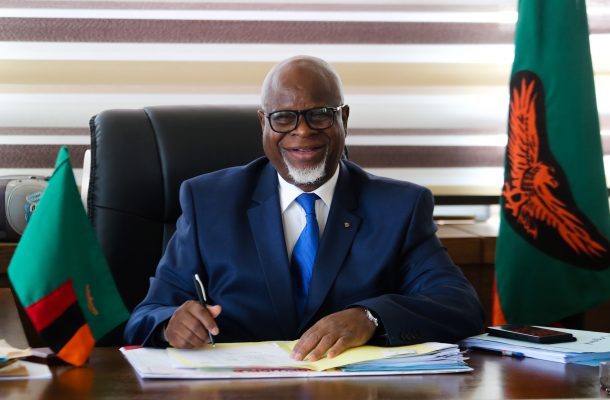Health Minister Elijah Muchima has called for a concerted effort to promote healthy lifestyles and improve the early detection and management of Non-Communicable Diseases (NCDs) in Zambia. Speaking at the 58th session of the Commission on Population and Development at the United Nations Headquarters in New York, Muchima emphasized the urgent need for collaborative action to address the growing burden of NCDs, which include conditions such as cardiovascular diseases, diabetes, and cancer.
According to a statement issued by Namatama Njekwa, the First Secretary for Press and Public Relations at the Permanent Mission of Zambia to the United Nations, the Health Minister highlighted the government’s commitment to reducing the prevalence of NCDs through various policies and strategies. Notably, Muchima pointed to the National Health Strategic Plan as a key framework guiding Zambia’s efforts to tackle the rising challenges posed by NCDs.
However, the Minister also acknowledged that while progress has been made, there is still a pressing need for enhanced collaboration between various sectors to effectively combat NCDs. “The fight against Non-Communicable Diseases requires a collective approach, and we must strengthen multi-sector collaboration, particularly at the community level, to ensure that healthy lifestyles are promoted and NCDs are detected and managed early,” Muchima said during his address.
NCDs have become one of the leading causes of death globally, and Zambia is no exception. With rapid urbanization, changing lifestyles, and increasing risk factors such as tobacco use, poor diets, physical inactivity, and excessive alcohol consumption, the country is experiencing a rise in NCD-related health issues. This trend puts significant strain on the healthcare system and poses long-term challenges to the country’s development.
In his statement, Muchima stressed the importance of early detection and intervention, noting that timely management of these diseases could reduce the burden on both individuals and the healthcare system. The Minister urged the international community to support Zambia’s efforts through technical assistance, resource mobilization, and knowledge exchange, particularly in the area of NCD prevention and care.
The Zambian government is actively working to implement policies aimed at reducing the incidence of NCDs. These include public health campaigns focused on promoting physical activity, healthy eating, and tobacco control, as well as efforts to improve access to healthcare services for early detection and treatment. However, Muchima emphasized that achieving substantial progress would require greater coordination between the government, healthcare providers, the private sector, and civil society.
Furthermore, the Health Minister called for greater advocacy on the social and economic impact of NCDs. He explained that these diseases not only affect the health of individuals but also have far-reaching consequences on families, communities, and the national economy. As such, addressing NCDs should be seen as an urgent priority for both health and economic policy.
The Minister’s remarks align with global calls to strengthen the response to NCDs, particularly in low- and middle-income countries like Zambia, where health systems may be less equipped to handle the growing burden. Through strengthened policies, international cooperation, and a multi-sectoral approach, Zambia is committed to reducing the impact of NCDs and improving the overall health and well-being of its population.
In conclusion, Minister Elijah Muchima’s speech underscores the critical need for a holistic approach to addressing NCDs, one that includes prevention, early detection, and effective management. By fostering collaboration across sectors and promoting healthier lifestyles, Zambia can make significant strides in combating these diseases and safeguarding the health of its people.






